Filters
Product Categories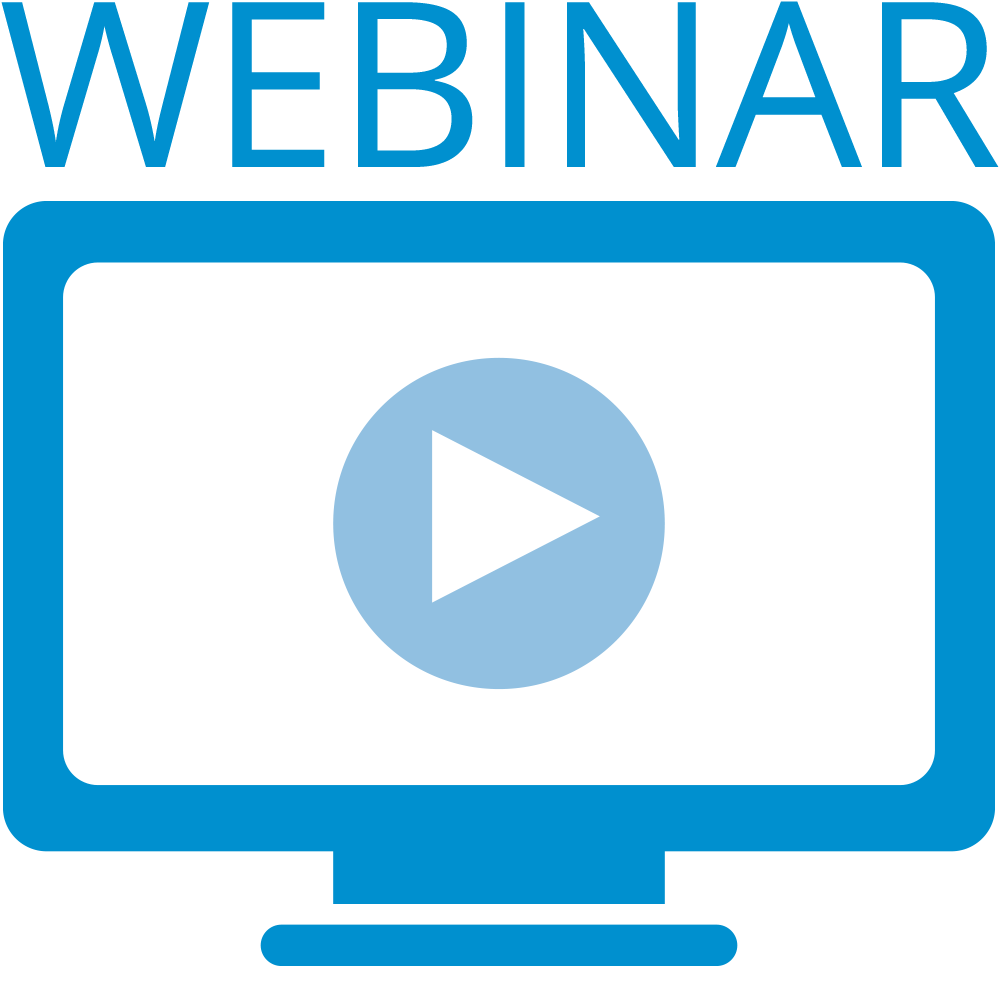
Exploring the 2021 Power of Seafood and US Seafood Consumption Trends

Thanks to the latest advances in technology over the past several decades, seafood suppliers and buyers can now do their bidding both dockside and by the light of their desktop computers. What’s the value in conducting seafood transactions online and, conversely, in person? Join SeafoodSource.com alongside Mike Budreski, founder of online trading solution Ocean Executive, and Katy Davidson, oyster sourcing expert and founder of the Oyster Academy, as we explore the many intricacies of dealing seafood in the modern world.

Giving a Voice to Mid-Supply Chain Companies: How Sea Pact is Driving Change from the Middle
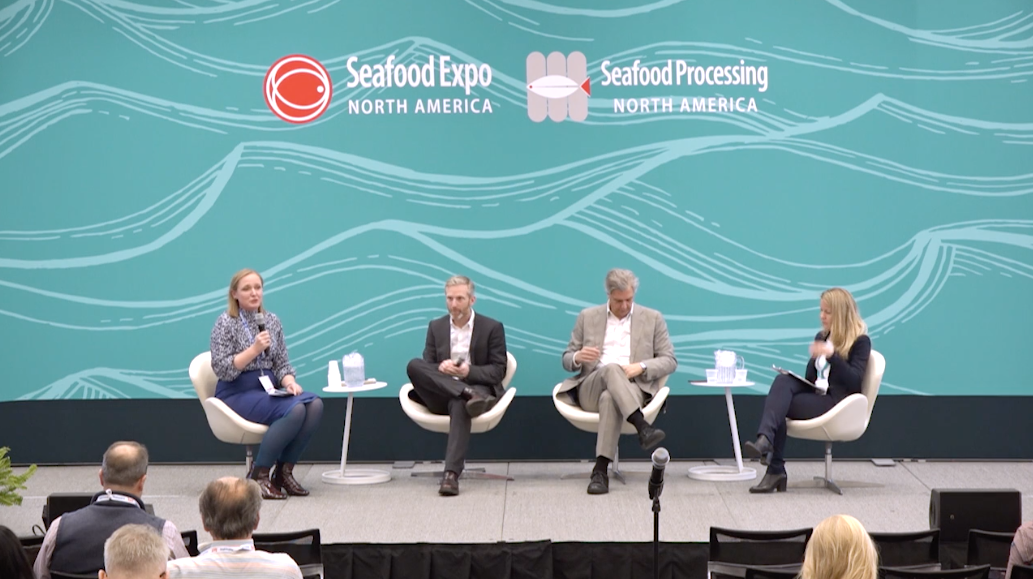
Speakers: Darian McBain, Thai Union; Wenche Gronbrekk, Cermaq; Henrik Österblom, Stockholm University; Jose Villalon, Nutreco
The aim of the newly created SeaBOS initiative is to stimulate industry leadership for ocean stewardship in accordance with best available science. SeaBOS is the result of a science-based identification of “keystone actors” in global seafood, carried out by the Stockholm Resilience Centre (SRC) of Stockholm University and published in 2015. The members represent aquaculture, wild-capture fisheries, and the feed industry. The SRC has facilitated and coordinated the work of SeaBOS since 2016, but is now transferring this role to the companies themselves.
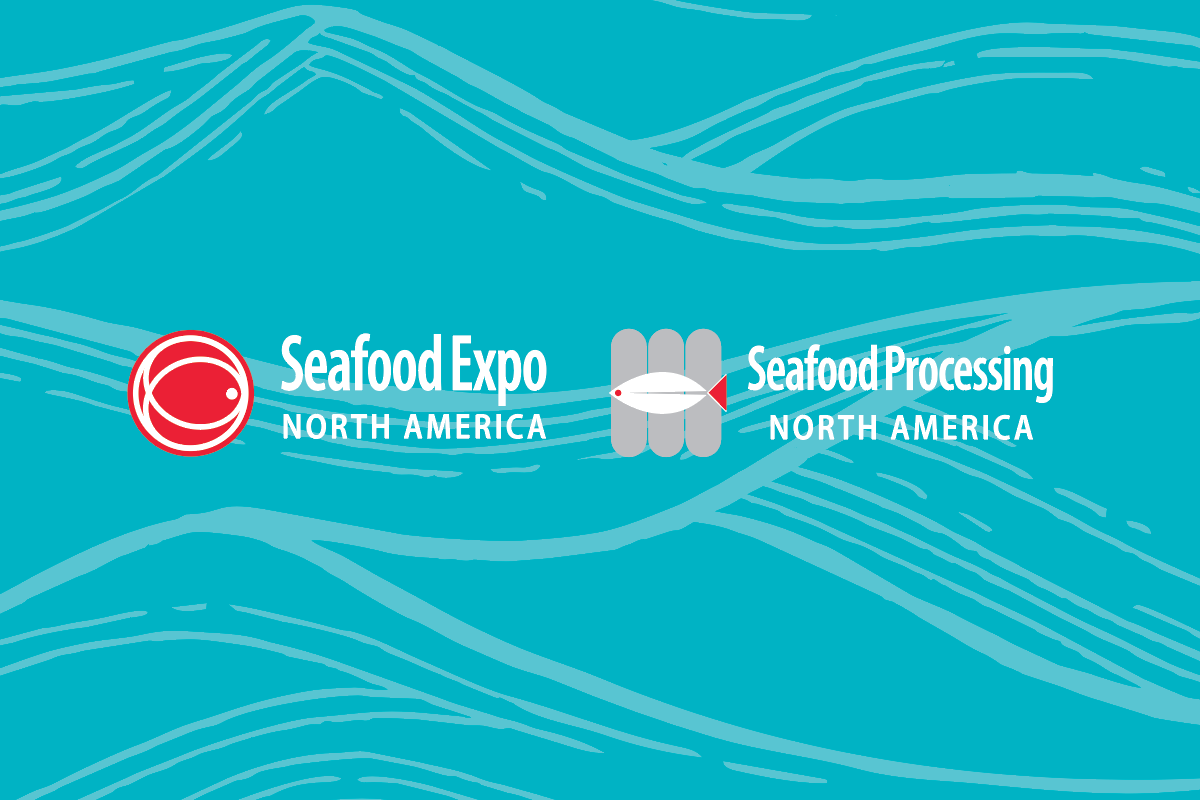
Access all six available Seafood Expo North America 2019 conference session videos, including:
- Seafood Business for Ocean Stewardship
- How to Build a Rock Star Consumer Brand
- Delivering on Seafood Traceability Under the U.S. Seafood Import Monitoring Program
- FDA and Customs Compliance and Enforcement: Successfully Operating in an Evolving Regulatory Environment
- What Consumers Want: The Future of Sustainable Seafood
- Social Sustainability in Fisheries Value Chains
This Product Includes:
-
$45.00
FDA and Customs Compliance and Enforcement: Successfully Operating in an Evolving Regulatory Environment
Speakers: Benjamin England, FDAImports.com, LLC; Steve Bloodgood, US Food And Drug Administration; Troy Petrillo, US Food And Drug Administration; Jessica Rifkin, Benjamin L. England & Associates, LLC and FDAImports.com, LLC
The session will explore FDA’s and Customs’ inspection and audit processes for seafood processors and importers and seafood import shipments. Hear from FDA and Customs officials on what to expect in 2019, what they think is important, and why. Pick up tips on what you should be doing to make these inspections go more smoothly. Learn what seafood importers should avoid to reduce the risk of Customs actions. With the support of reality-based case studies, this panel will explore the importance of integrating regulatory compliance across many agency jurisdictions – and the potential pitfalls for seafood processors and importers. Hear how Custom’s Automated Commercial Environment (ACE) acts as a Single Window for Multi-Agency Enforcement. The panel will also discuss how new and renewed free trade agreements and tariff changes inform agency inspections and data requests and impact the seafood industry in particular.
-
$45.00
Seafood Business for Ocean Stewardship
Speakers: Darian McBain, Thai Union; Wenche Gronbrekk, Cermaq; Henrik Österblom, Stockholm University; Jose Villalon, Nutreco
The aim of the newly created SeaBOS initiative is to stimulate industry leadership for ocean stewardship in accordance with best available science. SeaBOS is the result of a science-based identification of “keystone actors” in global seafood, carried out by the Stockholm Resilience Centre (SRC) of Stockholm University and published in 2015. The members represent aquaculture, wild-capture fisheries, and the feed industry. The SRC has facilitated and coordinated the work of SeaBOS since 2016, but is now transferring this role to the companies themselves.
-
$45.00
Delivering on Seafood Traceability Under the U.S. Seafood Import Monitoring Program
Speakers: Laurel Bryant, NOAA Fisheries; Todd DuBois, National Oceanic And Atmospheric Administration, Office Of Law Enforcement (NOAA OLE); Christopher Robertson, U.S. Customs And Border Protection; Steven Wilson, U.S. National Marine Fisheries Service
SIMP – a key tool in the United States’ response to combating IUU fishing and seafood fraud – has now been in place for more than a year. The recent addition of shrimp and abalone under its monitoring nearly doubled the volume and value of imported fish now subject to U.S. seafood traceability rules. How is it working? What’s next for seafood importers and exporters? The panel, composed of individuals representing the various roles and government agencies responsible for implementation, will present their perspectives on the program’s effectiveness and engage in moderated discussion and Q&A with the audience.
-
$45.00
What Consumers Want: The Future of Sustainable Seafood
Speakers: Christine Burns Rudalevige, Coastal Culinary Academy; Abbie Curtis O’Reilly, GlobeScan; Brandon Hill, Sustainable Restaurant Group; Jennifer Lambert, Loblaw Companies Ltd.; Jan Tharp, Bumble Bee Seafoods; Shelley Zang, Kroger
A recent consumer survey found that 79 percent of American seafood consumers agree that fish must be protected for future generations. However, only 15 percent of American seafood consumers feel that retailers and large companies are effectively protecting the ocean environment. How can this gap be bridged? This session will attempt to better understand consumer behavior and the roles that brands, retailers, distributors, restaurants, and NGOs play in this important space. It will also unpack consumer decision-making at point of purchase, and the role the Marine Stewardship Council plays in purchase motivators. The panel will open with an overview of the survey results by Globescan, followed by input from industry leaders on how they are engaging with consumers and making them feel more confident in their purchases. Time will be dedicated to engaging the audience in a discussion about how to empower consumers in their purchasing decisions. The goal of this session is to gain an understanding of consumer purchasing motivators and market trends so that seafood brands, retailers, etc., can better inform their sustainability practices.
-
$45.00
How to Build a Rock Star Consumer Brand
Speakers: Carol Ortenberg, NOSH / BevNET; Poorvi Patodia, Biena Snacks; Ken Plasse, Fishpeople; Kate Weiler, Drink Simple
The seafood industry has historically been very supply driven. But today’s consumer doesn’t want to be “sold” on what they need or engage in a one-way transaction with a company. Instead, they want to belong to a brand. In this panel, hear from experts in the natural foods and meal-kit world who have built successful, fast-growth, venture-backed businesses that are solving unmet consumer needs and building long-lasting relationships to help fuel future company growth. The aim of the panel is to give attendees a better understanding of how to meaningfully market to millennials and lessons on building an enduring brand that will drive company value and growth. Panelists will present examples of successful marketing programs, consumer research findings, and actionable suggestions. They will engage the audience with mobile polling along the way. The goal is for half the session (or more!) to be left for audience to ask questions.
-
$45.00
Social Sustainability in Fisheries Value Chains
Speakers: Herman Wisse, The Global Sustainable Seafood Initiative (GSSI); Darian McBain, Thai Union; Hugo Byrnes, Ahold Delhaize; Sonja Schmid, The Consumer Goods Forum; Joe Zelasney, Food And Agriculture Organization
Globally, great efforts have been made to ensure seafood is produced and traded in an environmentally sustainable manner, while the promotion of social sustainability in seafood value chains has been much slower. The need to address critical social labor issues in the seafood industry is now globally understood and widely acknowledged. For this session, GSSI will be joined by the Consumer Goods Forum’s Sustainable Supply Chain Initiative (SSCI) to discuss the two organizations’ collaboration to develop a global benchmark for social compliance schemes in the seafood sector. By providing an open-source list of recognized schemes, the GSSI – SSCI benchmark tool will deliver clear guidance on which seafood schemes cover key social compliance criteria and apply robust verification practices. GSSI and SSCI will also be joined by industry experts from across the supply chain and international organizations to discuss the role of international instruments and the importance of multi-stakeholder collaboration in safeguarding human rights throughout seafood value chains.
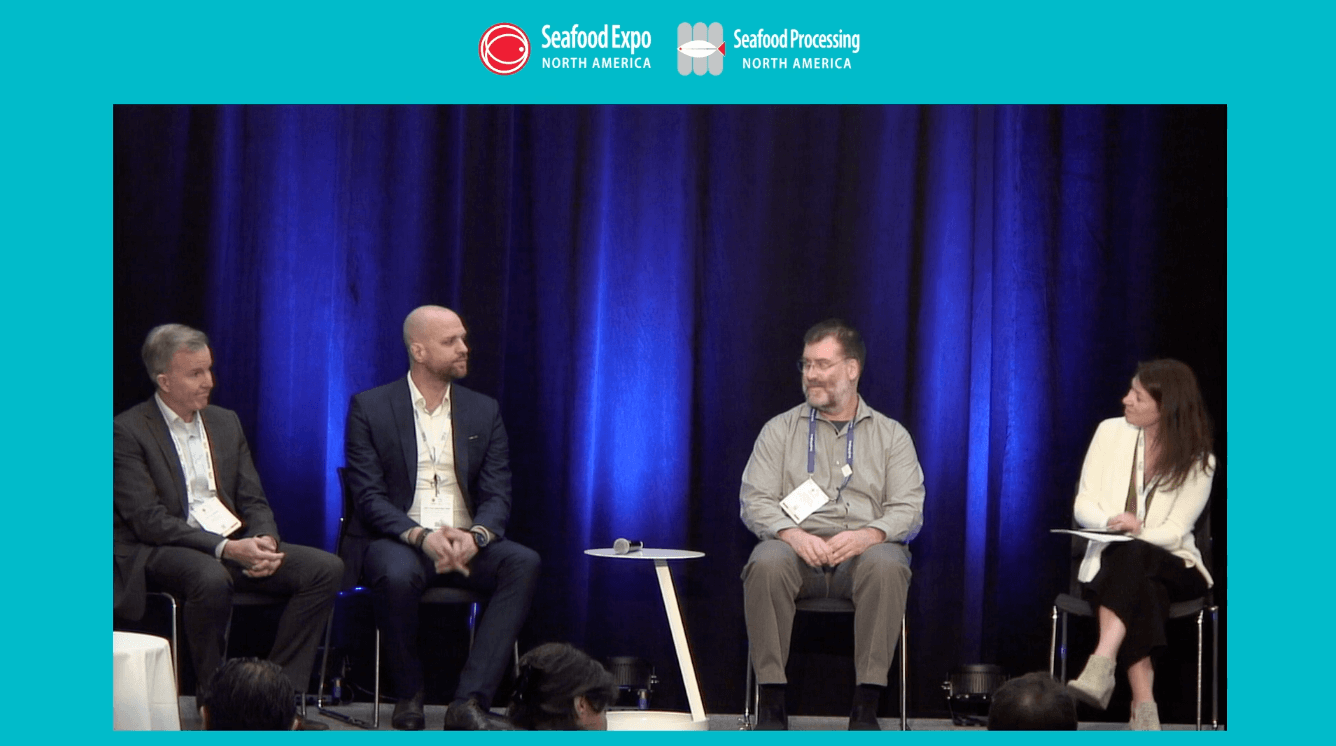
Moderator: Jill Swasey, ASC
Speakers:
- Anton Immink, ThinkAqua
- Dave Martin, Sustainable Fisheries Partnership,
- Roy Van Daatselaar Aquaculture Stewardship Council (ASC)
Fishery Improvement Projects (FIPs) have become an instrumental tool for fisheries sustainability over the past decade. While improvements in aquaculture are just as critical as in fisheries, Aquaculture Improvement Projects (AIPs) are far less developed than their FIP cousins and have yet to gain traction in the marketplace. At the same time, awareness is growing on the historic and current environmental impacts of aquaculture production, particularly on critical habitats such as mangroves. As aquaculture production increases globally, opportunities exist to both scale-up responsible production while also preserving the biodiversity and climate benefits gained through restoring critical habitats. Three of the leading organizations in responsible aquaculture – the Aquaculture Stewardship Council, Sustainable Fisheries Partnership, and Monterey Bay Aquarium Seafood Watch – are teaming up in an effort to streamline the path to sustainability for aquaculture producers, engaging more stakeholders in the process, and delivering improvements in farming practices and management that will protect those essential functions gained through restoring critical habitats. Farmers engaged in improvement program pilots are supported through partnerships with local consultants and supply chain partners. These pilots provide farmer support and capacity building at a greater scale by engaging farmers that have common practices and challenges in a shared region. In some instances, barriers to information requirements can be alleviated through the use of remote monitoring technology and shared impact assessment studies. This allows project partner organizations the opportunity to reduce the burdens and confusion of information needs to farmers and cater trainings and improvements to the farmer needs and at the scales at which they operate.
Together, these organizations will convene a diverse group of industry and other stakeholders to:
• Discuss the importance of aquaculture improvement in relation to assured supply of sustainable seafood;
• Explore how landscape level improvements can facilitate farm-level certification (and vice versa);
• Highlight opportunities to protect and restore critical habitats and maintain responsible farming practices; and
• Share some early lessons learned and opportunities for engagement in pilot aquaculture improvement projects underway.
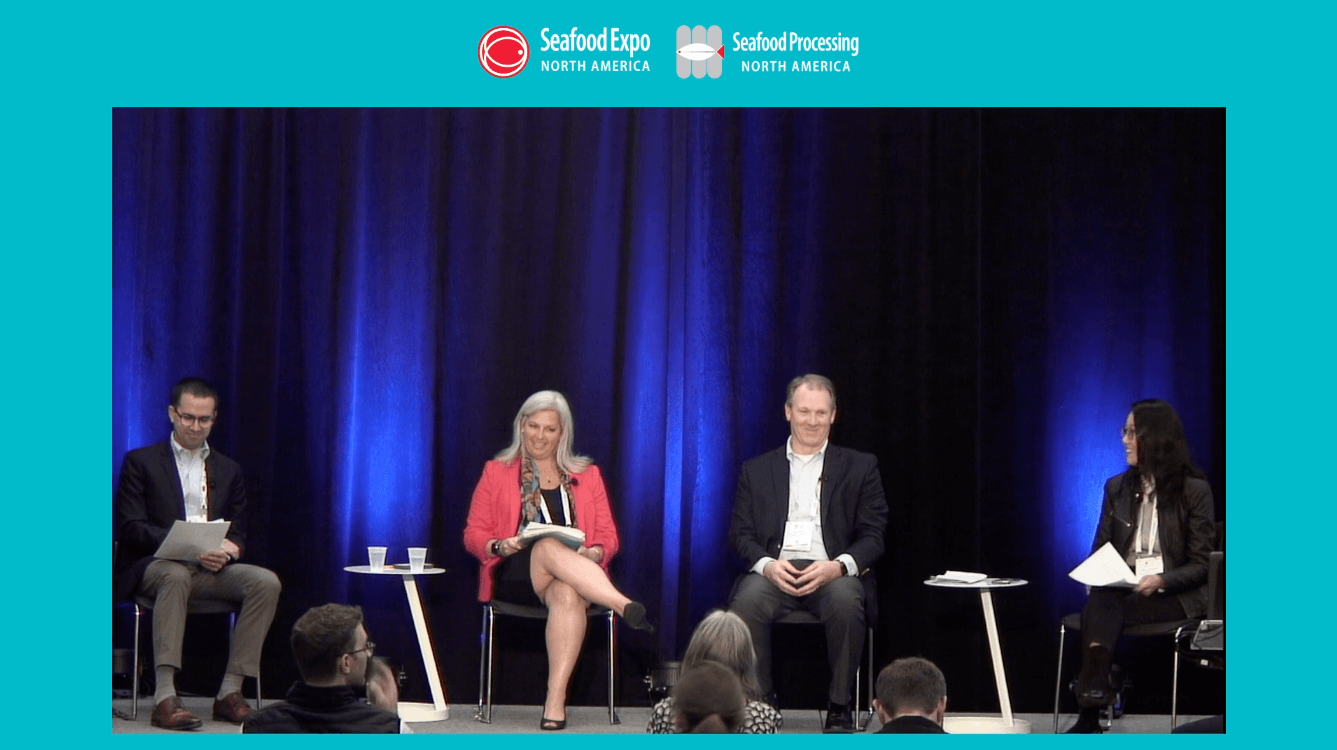
Moderator: Linda Cornish, Seafood Nurtrition Partnership
Speakers:
- Leanne Bosarge, Bosarge Boats Inc.
- Jason Driskill, H-E-B
- Jim Motos, Rich Products Corporation
- Joe Rosenberg, CenSea, Inc.
It’s time to unify as an industry and be a true competitive force. Industry leaders from across the supply chain have come together to incubate a National Seafood Council to conduct a national seafood marketing campaign. These passionate leaders are working to secure federal funding for the most comprehensive national seafood marketing campaign in our industry’s history. This is YOUR chance to have a voice in the creation of YOUR Council and YOUR marketing campaign. Join us to learn, ask questions and challenge the team so YOU are represented.

Aquaculture is a critical part of the answer of how we will feed our world in the future.
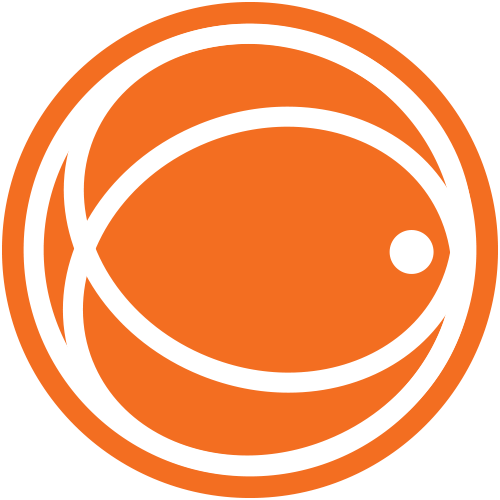
Access all SeafoodSource content – unrestricted.
This team membership level provides SeafoodSource Premium access for you and your colleagues. Pricing is static and will not change as members are removed or added to the team.
Memberships will automatically renew on an annual basis until cancelled. By becoming a member, you will also be subscribed to SeafoodSource News, SeafoodSource's digital newsletter. You may unsubscribe at any time.

The day before U.S. Election Day on 8





